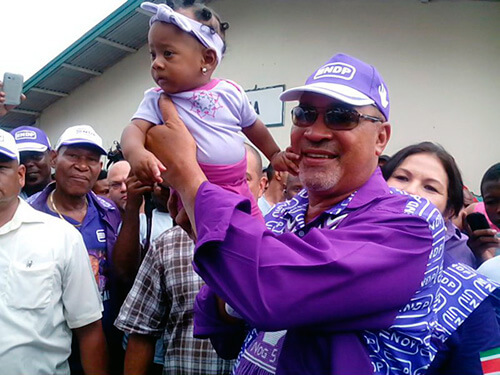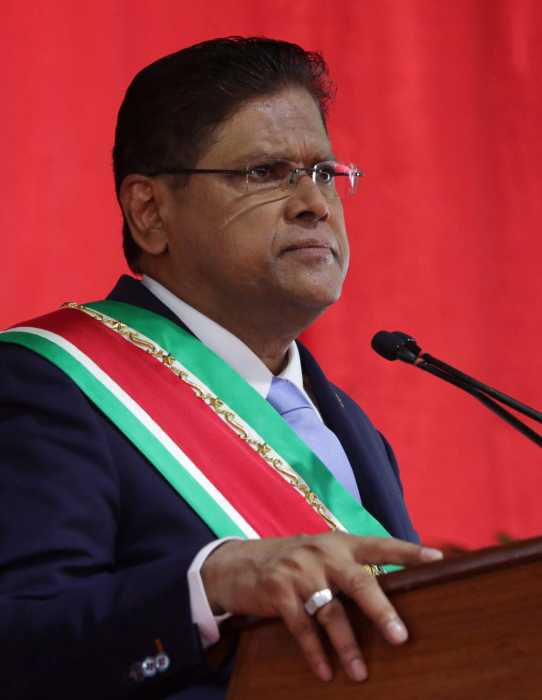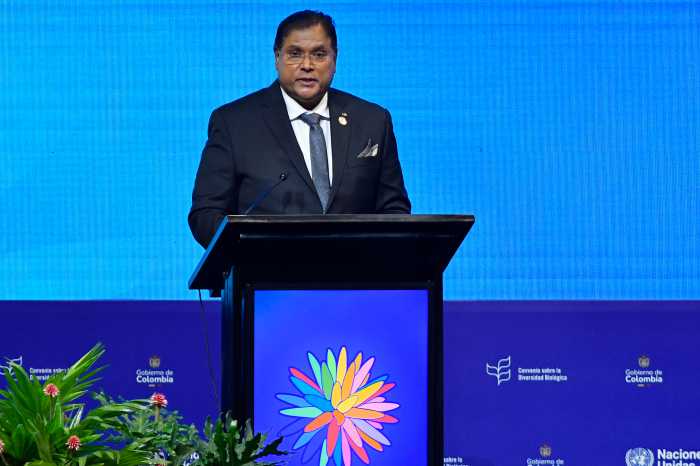A former strongman who formed and ran a political party while still head of the country’s military was this week elected as the civilian president of Suriname for the second time in a decade.
Desi Delano Bouterse’s National Democratic Party (NDP) ran with a multiparty coalition in the last elections in May of 2010 but opted to do so alone this time winning 27 of the 51 parliamentary seats and allowing him to form a new government all by himself.
But because of local electoral laws, he will need to reach out to other smaller parties such as the Maroon-dominated Alternative Combination, which won five seats in the southeastern districts near the river border with French Guiana to get the 34 or two-thirds votes to be named as president by fellow parliamentarians.
This process is normally a very protracted one. Bouterse, 69, was not made president by assembly peers until mid July of 2010 and not inaugurated until a month after that. The same situation is expected to play out this time.
If he chooses not to join up with other parties to obtain the two-thirds majority, he can turn to the People’s Assembly, which comprises dozens of representatives from councils in the interior and outlying districts to win the appointment.
More than 300,000 people were eligible to vote in the elections which had pitted the NDP mainly against a V-7 combination led by the VHP or Hindustani party led by former police chief Chandrika Santokhi. The VHP won a mere eight seats and acknowledged that it was soundly beaten by the NDP which despite being behind a February 1980 and Christmas Eve 1990 coups, is perhaps the only party showing sustained growth in Dutch-speaking Suriname.
Bouterse and his NDP colleagues have over the years not only been persistently blamed for disrupting normal life in Suriname with the two coups, but also for the 1982 executions of 15 government opponents including four journalists, clergymen, labor unionists and academics. He was even convicted in Holland for drug trafficking in absentia, charges he says are trumped up.
He has apologized for this atrocity, contending that as de facto head of the country at the time, he has to accept collective and ultimate responsibility for the deaths but denies personal involvement.
Still, thousands of youths who were born after 1980 and 82, appear to have brushed aside these serious blotches on the career of Bouterse and the NDP and are lining up behind the party in droves, moving it from three seats in 1987 to 27 today, enough to form a government by itself.
“Just look at the national result. The party has grown tremendously, which means that Surinamese have confidence in the NDP and our President Desi Bouterse,” said NDP spokesman Guilliano Snip. Bouterse noted that “we have always said that together we can do it,” even as Snip has confirmed plans to reach out to other seat-winning parties to ensure Bouterse is named president.
His election now means that the Caribbean Community now has two former soldiers at the helm of state and government, retired one-star General David Granger, also 69, in Guyana and now Bouterse, who at the time of the first coup was a rebellious army sergeant but later became a colonel as he ran the country as its de facto head from 80-87.
Critics are noting that nothing like this has ever happened in CARICOM but the two neighboring mainland states, which are on the South American continent are showing the way and appear to be leaning towards a preference for military-style leadership to turn their fortunes around.

























